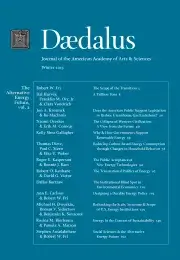Rethinking the Scale, Structure & Scope of U.S. Energy Institutions
This essay notes some of the key institutions created in the twentieth century for the purpose of delivering energy in North America. Those institutions are being challenged by a combination of stresses in three interconnected areas: reliability, economics, and environmental sustainability. The essay argues that these three stresses create an “energy trilemma” requiring institutional reform. We suggest that new and modified institutions can best be understood if we evaluate them along three dimensions: institutional scale, structure, and scope. We consider real-world examples of recent institutions in light of each of these dimensions and note both successes and concerns that those factors illuminate. We conclude by noting that some institutional changes will be organic and unplanned; but many others, including responses to climate change, will benefit from conscious attention to scale, structure, and scope by those engaged in designing and building the energy institutions needed in the twenty-first century.
“Men work together,” I told him from the heart,
“Whether they work together or apart.”
–Robert Frost, “The Tuft of Flowers,” A Boy’s Will (1913)
People act in many ways. Occasionally we act alone. More often, we act together, because, as Aristotle said, humans are indeed social animals.1 Some group actions–and most individual ones– have short-lived effects. Other mutual actions are organized, enduring, and extraordinarily effective. These cases usually involve organizations, called institutions, that coordinate and maximize the effectiveness of individual actions. Over time, however, institutions often take on their own lives, beyond those of the people acting within them. Eventually, the institutions may be so rooted in past crises that they no longer fit emerging needs. We can see this phenomenon now, in the institutions that our grandparents developed to deal with our nation’s– indeed, our entire continent’s–energy needs.
. . .
